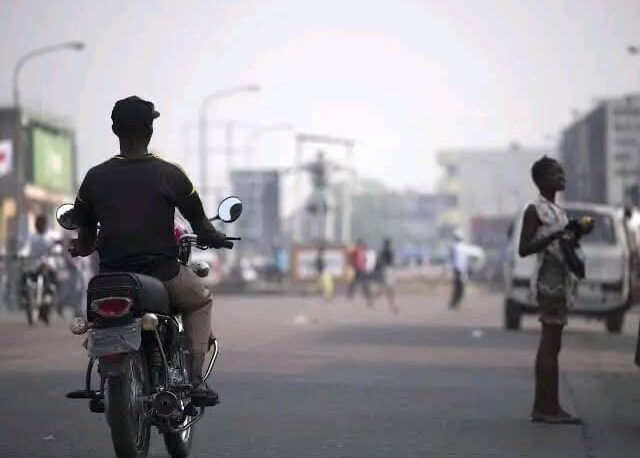As of mid-2025, robbery and swindling remain significant concerns in Kinshasa, driven by a combination of socio-economic challenges, gang calls “Kuluna” activities, and limited law enforcement capacity. The latest case is that of burglars who attacked money changers at the University of Kinshasa on Friday afternoon, May 30, 2024. So far, the toll is not yet known. The modus operandi of these bandits has always been the same, or almost.
For today at the University of Kinshasa
According to several witnesses interviewed on the spot, the thugs first tried to attack a bank branch located within the Faculty of Letters and Humanities, before redirecting their attack to the informal exchange offices set up not far from the university police station, in the area commonly known as “Trafic”. “They fired several shots into the air. Two students were wounded in the panic. The moneychangers were robbed of almost 7,000 US dollars”, says a 2nd year law student, still in shock.
Urban Crime and Gangs
Street-level crime in Kinshasa is often attributed to gangs known as Kulunas or urban bandits. These groups engage in violent robberies, extortion, and assaults, frequently targeting homes, shops, and public spaces. They are particularly active in neighborhoods such as Ngiri-Ngiri, Ngaba, Kalamu, Matete, and Kisenso, where they operate with machetes and other weapons .
In response to the escalating crime, the Congolese government has intensified its crackdown on urban gangs. In December 2024, Operation “Ndobo” led to the arrest of 450 individuals across Kinshasa, with many facing swift trials and severe sentences, including the death penalty .
Swindling and Robbery Tactics
Swindlers in Kinshasa employ various deceptive tactics to exploit both locals and foreigners:
- Taxi-related robberies: Criminals pose as taxi drivers or passengers, luring victims into vehicles and then robbing them, often under the threat of violence.
- Scams involving fake goods: Individuals offer counterfeit or non-existent products, such as gold or diamonds, at attractive prices, only to defraud buyers.
- Impersonation of authorities: Fraudsters pose as police or security personnel to intimidate victims into compliance.
Written by Patient Igunzi

